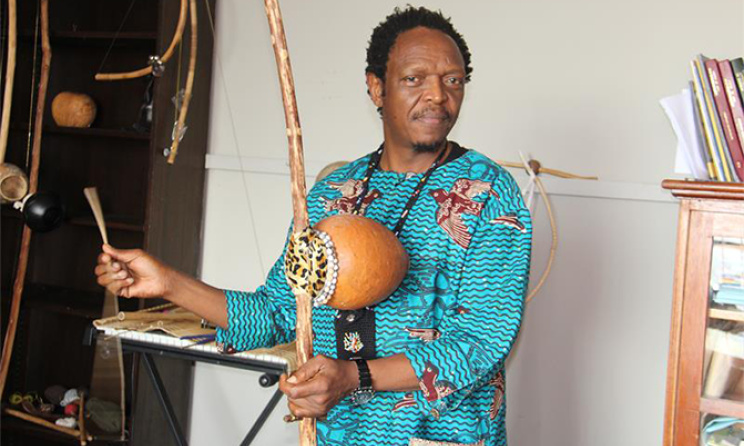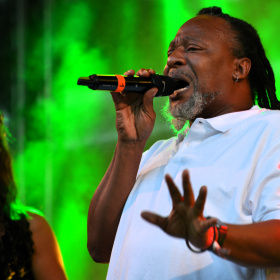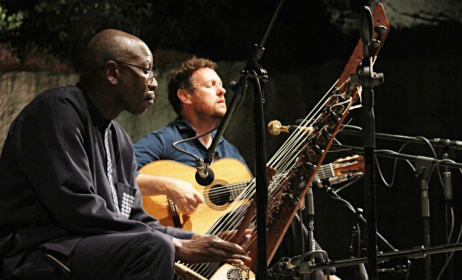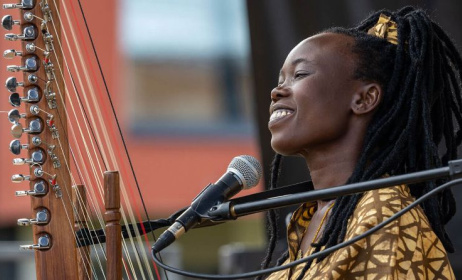Musicologist has passion for traditional music artistry
It's satisfying, it’s consoling and an integral part of life. For Afrocentric musician Dr Sazi Dlamini, music is the soul food he cannot live without.
 South African ethnomusicologist Dr Sazi Dlamini.
South African ethnomusicologist Dr Sazi Dlamini.
“It’s one of those things that is crucial to me, I don’t think I would be able to cope if I wasn’t involved in it in any way,” he said.
The family man who now lives in Queensburgh, South Africa, was born in 1966 and matriculated from Amanzimtoti Zulu Training School, formerly known as Adams Mission, in 1979.
He came from a home where music was part of the family and every year during Christmas time he, his brother and some friends formed a music group and sang at events in the community.
“My brother and I played home-made tin guitars and from that stage I knew that I was not a very confident performer, which is why I gravitated towards studying music,” he said.
He studied in Durban and graduated from the former University of Natal with a diploma in musical performance in jazz guitar, which was followed by a bachelor in music degree, specialising in jazz and jazz studies in 1995, and a masters in ethnomusicology in 1997.
“It was unusual for black people to study music at a higher level then,” he said. “In my first year in music school I bought myself a traditional sangoma [healer] drum,” he said.
In 2008, Dlamini achieved his PhD in musicology with research on South African jazz in exile, for his thesis entitled South African Blue Notes: bebop, mbaqanga, apartheid and the exiling of a musical imagination.
Before this he enrolled at the University of Forte Hare for a BSc, which didn’t work out as that year was disrupted with strikes and protests. After the protest he said many were recalled back to study but he never received his recall letter.
In 1981 he decided to try out a career in medicine at the University of KwaZulu-Natal’s (UKZN’s) Nelson Mandela School of Medicine but that didn’t last long as he only did it to follow the crowd. During his three years in medical school, Dlamini met many people which he may have not easily associated with before because of the oppression of the time.
“It was an environment full of politics but there were still opportunities for creativity as we had poets and musicians,” he said.
Dlamini is an ethnomusicologist, composer and performer intrigued by traditional music instruments.
“Music adds to me, it is one of those things that defines the socialisation of people; it is one of those things that are important in negotiating identity,” Dlamini said.
In 1991 he co-founded the band iSkokiana and has recorded a number of original musical pieces that employ indigenous Nguni instruments such as bows, drums and flutes, which he has made himself, as well as other African musical instruments.
Apart from being a research musicologist and lecturer in music history and culture at UKZN and being involved in leading research initiatives for the recording and processing of music archival resources, he is a family man who enjoys going home after a long day at work to make a cup of tea for his partner, Maria Cristina.
“She loves tea, I wake every morning to fix her a cup and I anticipate going home every day to cook dinner as I love being in the kitchen,” Dlamini said.
He says music is present even when cooking, as he plays the bow in between stirring the pot. Dlamini also plays the flute, which Maria hates because of its sound.
This article first appeared in Highway Mail
































Comments
Log in or register to post comments